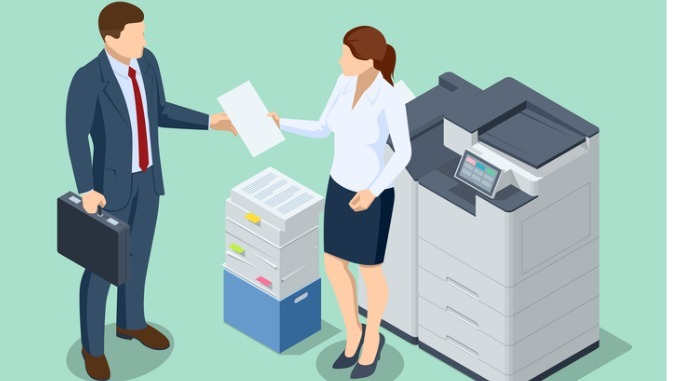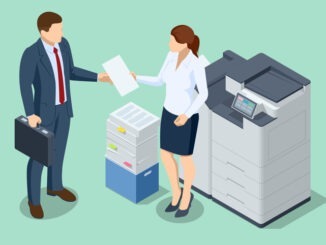
For dealers, particularly those focussed on providing technology assets, traditional printing technology remains a core product line, essential in almost every office environment. However, there are distinctive opportunities for dealers to expand and diversify by embracing non-traditional printers
While non-traditional printer models may not yet be integral to traditional workplace operations, their prevalence is rising as businesses seek more diverse printing capabilities and adaptable, transportable printed materials. For dealers, incorporating these products into your offerings showcases a keen awareness of the changing needs of modern businesses.
Portable and Bluetooth printers
With hybrid and remote working now widespread across the UK workplace landscape, the demand for on-the-go printing capabilities has become crucial for small businesses. Bluetooth printers provide the ultimate flexibility with their wireless connectivity, allowing users to print anytime and anywhere they need. This feature is particularly valuable in environments where mobility is essential, such as warehouses and storage facilities that require efficient label printing in high volumes.
Portable printers also offer significant benefits for businesses hosting events, enabling quick printing of items like photographic IDs or badges on site. Moreover, dealers can emphasise the sustainability advantages of portable printers, as they eliminate the constant need for connection to a power source.
3D printing
Whether your customers currently use one or not, it’s likely they’ve seen or experienced a 3D printer in action, given their growing popularity in recent years. The global 3D printing market is projected to reach approximately $55.8 billion by 2027, highlighting its rapid growth and expansive potential. The opportunity for dealers lies in identifying which customers could benefit from 3D printing technology. For instance, small businesses heavily involved in product design can leverage 3D printing for creating prototypes quickly and independently, reducing reliance on external parties.
As a dealer already supporting traditional printers for these same customers, there’s an opportunity to expand relationships by addressing their printing needs in untapped areas of the business. This proactive approach not only meets current demands but also positions dealers as essential partners in their customers’ growth and innovation strategies.
Flatbed printers
As businesses expand and diversify, their printing needs may also evolve to include a variety of materials such as canvas, vinyl, film and cloth. This flexibility is particularly advantageous for businesses looking to create their own signage and promotional products without relying on external suppliers. For dealers, this presents new sales opportunities by offering a range of materials compatible with flatbed printers in various sizes, expanding their current paper-focused offerings.
While flatbed printers were once large machines requiring significant space, the market now offers smaller alternatives that fit comfortably into any workplace floorplan. Despite potentially higher initial costs, these machines enable businesses to bring non-traditional printing processes in-house, saving time and money.
Offering non-traditional printer models, even if not part of the core product range, can significantly benefit dealers in meeting the evolving demands of modern businesses. By incorporating these products, dealers demonstrate a proactive understanding of shifting market needs and technological advancements in printing. Moreover, providing alternative printer models enhances a dealer’s competitiveness and also appeal to a broader range of customers who may seek innovative solutions for specific applications, such as printing on diverse materials or in mobile environments.


Be the first to comment